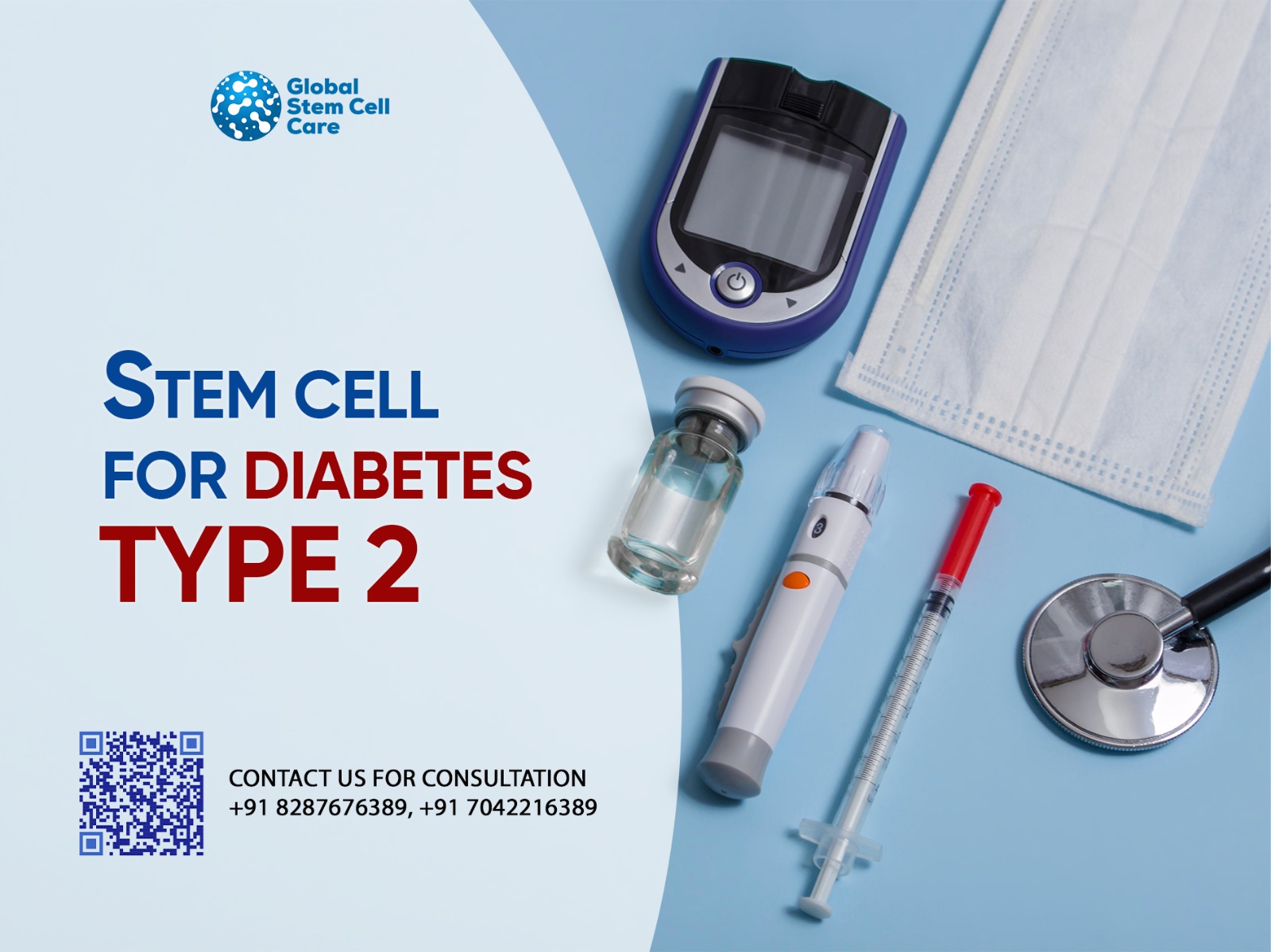Diabetes type 2 is one of the most common chronic diseases plaguing millions worldwide. It arises due to the body becoming insensitive towards insulin or being incapable of producing it sufficiently, which raises blood sugar levels. Where a diabetic diet and medications have been the established methods for managing the disease for long periods, new solutions in medicine indicate promising ways to deal with diabetes like stem cells. Innovations for therapies are now coming, and Global Stem Cell Care is not an exception as it is one of the organizations that now offer consultancy to those considering this earth-breaking treatment.
Understanding Diabetes Type 2
It is important to know the basic mechanism behind diabetes type 2 before reading on about the potential benefits from the use of stem cells. The disorder is mainly associated with an inability of the body to use insulin, a hormone that is supposed to handle glucose uptake in blood. The repeated failure gradually promotes insulin resistance and, in the majority of cases, the failure of the pancreas to produce enough insulin to meet the body’s demand.
More traditional type 2 diabetes treatments entail modification through lifestyle, which includes diet for diabetes and exercise together with the intake of other drugs that regulate blood sugar. These treatments only mask symptoms and are not treatments for the disease.
What are Stem Cells?
The importance of stem cells lies in their potential to develop many different types of cells within the body. This singular property gives them a position of power in regenerative medicine, because they may replace damaged cells and tissues in the body. For instance, insulin-producing cells in the pancreas can be regenerated in patients with diabetes type 2 using stem cells, thus improving the body’s natural regulation of sugar in the blood.
How Can Stem Cells Assist with the Treatment of Diabetes Type 2?
The promise of stem cells is the possibility that they can reverse the damage caused by diabetes type 2 instead of merely managing its symptoms. The therapy generally involves removing stem cells from the body or from a donor, after which they are reinfused into the pancreas. These cells are left to differentiate into the beta cells that produce and release insulin in the pancreas.
Advantages of Stem Cell Diabetes Type 2 Treatments
Reinstituting the Production of Insulin
The most prominent advantages of stem cell therapy include the reinstitution of a body’s normal insulin production. That way, patients may be relieved from strictly depending on medication or insulin injections to treat their blood sugar.
Maintaining Blood Sugar Control
Through stem cell therapy, this may be addressed and improve the body’s reaction to insulin, thus allowing individuals the capability to attain a normal level of blood glucose. This would lessen the potential for complications that develop from uncontrolled diabetes.
Prevention of Serious Long-Term Complications
Diabetes type 2 also usually causes nerve damage, heart disease, and nephropathy. Therefore, improved production and regulation of insulin through successful therapy in stem cells will make this remedy useful in preventing such serious complications.
Long-Term Remission
One advantage of this type of treatment is that it presents the possibility of long-term remission, which is not possible with conventional interventions. This way, patients who are treated through stem cell therapy have been able to show long-standing changes in the regulation of blood sugar.
Personalized Therapies
In this therapy, the stem cells can be derived from the patient’s body, so it is very patient-specific. This therefore decreases the chances of rejection and other complications, making it safe for most patients.
Role of Diabetic Diet in Stem Cell Therapy
With these new hopes for stem cell therapy in treating diabetes type 2, it is not lost that lifestyle changes still play a significant role in the management of the disease. A diabetic diet with full attention to balanced nutrition, sugar intake, and portion control remains essential. Patients undergoing stem cell treatment must follow a healthy diet to support their body in healing and get the best out of the therapy.
Final Thoughts
The new therapy in stem cells seems to be highly promising for the treatment of diabetes type 2, and it addresses the root causes of the disease instead of only managing symptoms. Stem cells might be able to restore the production of insulin to normal and regulate blood sugar to be the real revolutionizer in the diabetes care system. However, this treatment would be used with a healthy diabetic diet and lifestyle changes. As an enthusiastic patient of this new medical treatment, consider contacting Global Stem Cell Care to explore what stem cell therapy can do for you today.
